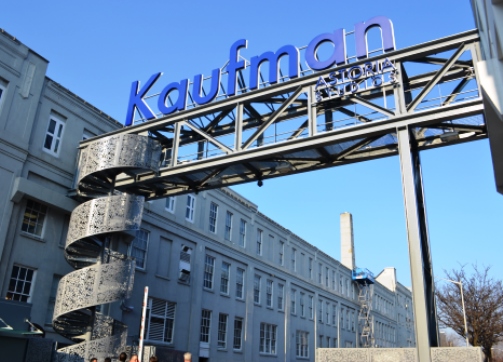Kaufman Astoria Studios, one of the largest and most sophisticated production facilities on the East Coast, is preparing to reopen its main gate and welcome back its many clients as the city itself moves into phase two of its economic reopening while the COVID-19 pandemic recedes.
“We will be following all safety and health protocols for all those entering the campus,” Kaufman Astoria Studios President and CEO Hal Rosenbluth said. “All of our vendors and contractors will have to pass through a wellness test as they check in at the gate. We should be fully up and running by the end of the summer.”
The studio will welcome back thousands of workers including writers, producers, production crews and union builders. The influx of people will be returning to a neighborhood that has struggled to stay afloat during the public health crisis and the studio’s reopening will bring customers to the restaurants, bars and other small businesses desperate to right the economic wrongs of the coronavirus shutdown.
“The COVID-19 pandemic was like an economic nuclear blast to the small business sector here,” Rosenbluth said. “The havoc it created for these businesses was extraordinary. Right now the neighborhood is a bloody ghost town.”
Kaufman Astoria Studios has been an economic engine in the community which in the 1970s was neglected and rundown until the late George Kaufman and a group of investors took over the abandoned facility that was the original home of Paramount Pictures built in 1920.
“When I first got here in 1980, the area was vacant and vandalized like a small Midwestern town that was devastated when the main company went out of business and all the jobs and spending in the local stores were gone. Our goal was to rejuvenate the neighborhood,” Rosenbluth said. “In addition to consistently growing and expanding our facility we’ve been an anchor for this section of Astoria and the dynamic started to change where it became gentrification of the area in a positive way. We brought in the UA Kaufman Astoria theater, helped found the Museum of the Moving Image, we were instrumental in making the area home to the Frank Sinatra School of Art as well as national chains such as Starbucks and Uno Pizzeria & Grill.”
These businesses, along with the neighborhood’s mom-and-pop shops, suffered when the studio went dormant back in March. Rosenbluth is counting on the economic reawakening to support these neighborhood businesses and lead to even more investment in the area.
“When the economy was riding high, and you didn’t want to give Amazon the money, that was one thing. It’s another thing when you’re up against it and you’re not riding high, you need people to invest in the neighborhood and help it grow,” Rosenbluth said. “We want other people to continue the process of growing the neighborhood with us. When production here swings back into full gear, we’ll need others to come in and be part of this economic engine. We’re going to create positive change for the community.”





































